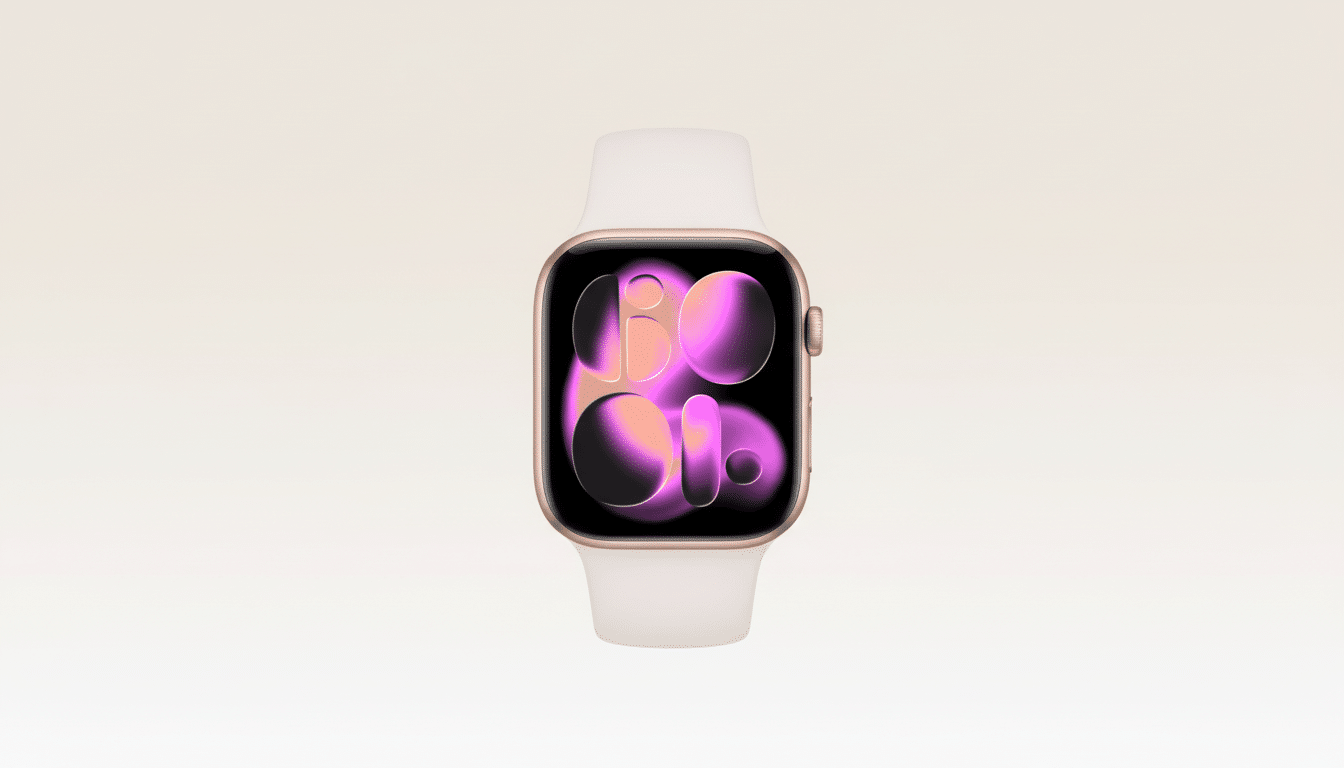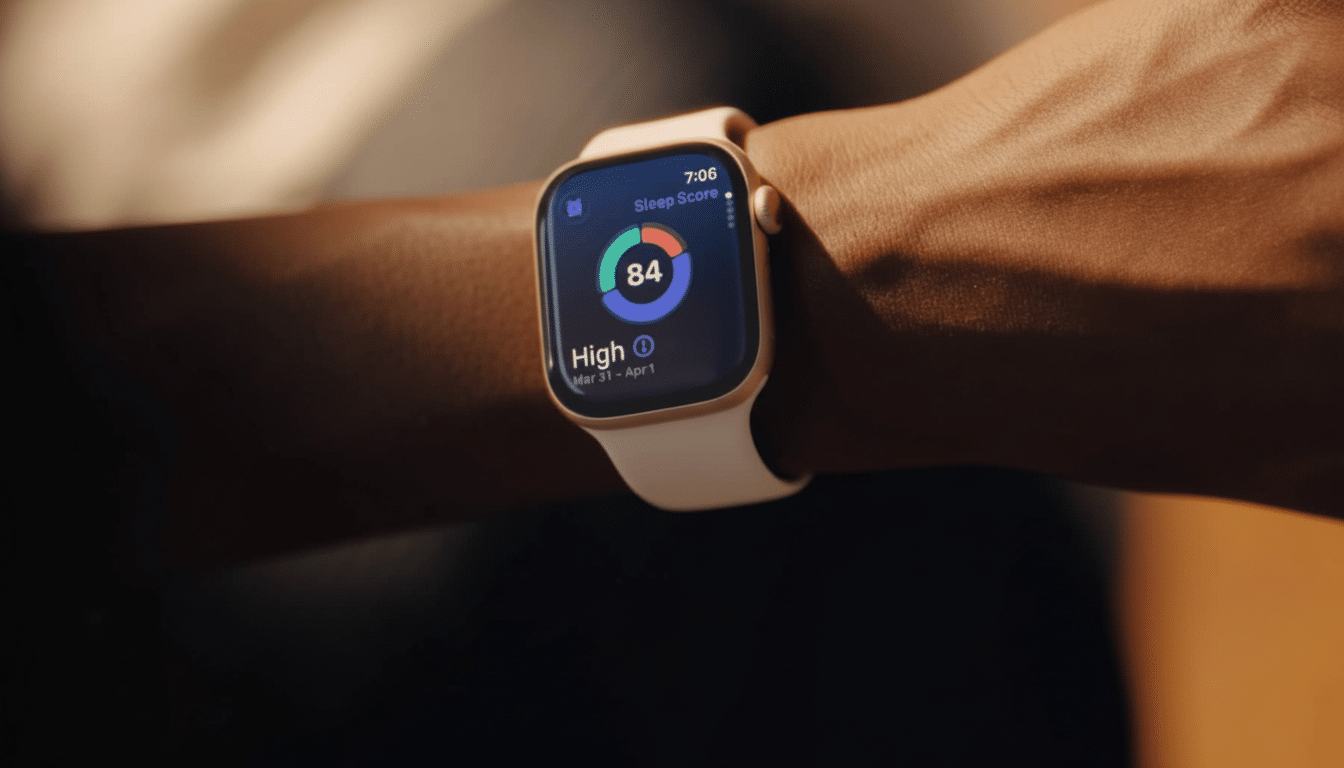For weeks, I wore Apple’s Watch Series 11 on my left wrist and Samsung’s Galaxy Watch 8 on my right, switching phones between them to keep things even, and used both while working out, sleeping, traveling and writing.
After a series of workouts, notifications and navigation and on-screen guidance, one watch turned out to be easier to live with — but it also depends which phone you keep in your pocket.

Design, display, and comfort
Both watches are thin, bright, and easy to read in direct sunlight. Apple’s flat, high-contrast OLED on the Series 11 also remains the most legible under harsh sunlight and auto-brightness ramp is among the smoothest I’ve used. Samsung’s Galaxy Watch 8 also meets it in peak brightness and has thinner bezels that frame a round watch face that looks more traditional and displays complications prettily.
Strap ecosystems are deep on both the sides. Apple’s one‑button band swap is overall still the speediest method; Samsung’s universal lugs ensure third‑party alternatives are plentiful and dirt cheap. Comfort is a wash — both are all‑day, all‑night wear.
Health and safety credibility
And, as you’d expect for those ECG readings and running results, core sensors are also stacked: optical heart rate, skin temperature, SpO2, dual‑frequency GPS. Both come with FDA‑cleared ECG apps and irregular rhythm notifications. Apple’s ECG clearance traces back generations, and studies on that scale like Apple’s own Heart Study with Stanford Medicine reported an 84 percent positive predictive value for notifications of irregular pulse — looking to credit longevity to Apple cardiac features.
Samsung strikes back with body composition by bioelectrical impedance (BIA). It is not medical accurate, but studies have been done comparing consumer BIA to gold standards have found good correlation for tracking trends (works great for training and nutrition) Both have Fall Detection and SOS; Apple layers on a few more polished touches, such as crash detection and slightly more adult emergency workflows.
Sleep tracking has tightened. Deviance is easy to spot thanks to Apple’s new Sleep Scores and regurgitated “vitals” trends. Samsung’s sleep stage graphs, snore detection and tracking insights continue to be plentiful and actionable. In comparisons over nights, staging matched up within a few percentage points on different nights — as you might expect with most consumer wearables.
Fitness coaching and AI
Apple’s Workout Buddy is a silent cheerleader, displaying pace, heart rate zones and tailored nudges for you across eight popular workouts… If you dig deep into the nitty-gritty of triathlon-style training (e.g. tracking breathing and momentum), that info can be accessed as well.. Wearable technology makes it possible to monitor each part of your body while working out. It weaves in historical performance effectively but stays away from flashy interventions. Samsung’s Running Coach is also more prescriptive: you perform a baseline test, receive a numerical score and get a straightforward, periodized plan. If you’re a runner who thrives on structure and progression Samsung’s approach is likely to please.
AI differentiates the daily experience. With Series 11, on‑device intelligence discreetly tunes the Smart Stack of cards to you, recommends a workout in just the right spot and adjusts notification volume based on ambient noise. It feels invisible by design. On the Galaxy Watch 8, Gemini functions more like a real assistant — you can link commands (“Find me a Thai place nearby, reserve for two at 7, add note of nut allergies”) and receive quick context-specific replies on your wrist. Samsung’s assistant edge is also palpable if you’re someone who really talks to your watch.

Battery life, performance and charging
Battery is the clearest split. With an always‑on display and mixed GPS workouts, the Galaxy Watch 8 regularly stretched to almost two full days for me. Solid day and a half for series 11, close to two days if I went no always‑on or called a run. Both charge fast — going from a depleted battery to about 80% charged in my tests took under an hour.
Performance is snappy on both, but Apple’s animations and app resumes are still the smoothest around of wearables. Samsung’s new chip plus optimizations to Wear OS deliver quick app launches and reliable GPS locks; maps and turn-by-turn never stuttered on city runs or trail hikes.
Apps, services, and ecosystem
Then there’s the real bottleneck: Apple Watch is, of course, for the iPhone while Galaxy Watch is designed to be for Android. Within those bounds, Apple’s App Store for watchOS has the widest selection of polished wearables apps by far — finance apps, travel tools, productivity boosters and even niche fitness aids. Samsung gets Google services, improved Gmail/Calendar management, on-wrist navigation with Google Maps and a fresh Wear OS ecosystem.
The maturity gap is supported by the market data: analyst firms like Counterpoint Research have long had Apple with a leading share of global smartwatch shipments, which draws developer support. That said, the world of wearables on Android has experienced a great renaissance through a partnership between Samsung and Google.
Real-world accuracy
Over five GPS runs in tree cover and city canyons, the watches plotted virtually identical courses, with the Series 11 drawing a slightly cleaner line on turns. During intervals and HIIT, Apple’s heart rate graph appeared with less dropouts; Samsung was rock-solid for steady state effort. They are both for everyday people trustworthy, although athletes who can send their heart rate climbing quickly may prefer Apple’s stability.
Verdict: who wins
If you already have an iPhone, the Apple Watch Series 11 is the no-brainer choice. It wins on polish, health credibility, app depth and quietly clever AI that stays the hell out of the way. If you’re on Android, the Galaxy Watch 8 is a better buy by a nose and longer battery life (the stronger wrist‑based assistant skills of course don’t hurt either) and the runner‑friendly coaching makes it an awesome daily driver.
In a platform‑agnostic vacuum, the overall advantage here goes to the Apple Watch Series 11, for its sensor consistency, safety features and day‑to‑day refinement. But the sensible option is clear: Hook your watch up to your phone and you’ll get a great experience — each of these devices is the best in its own ecosystem.

